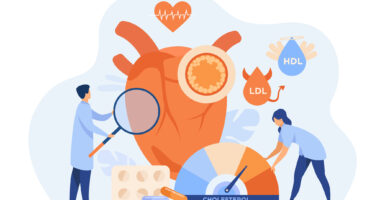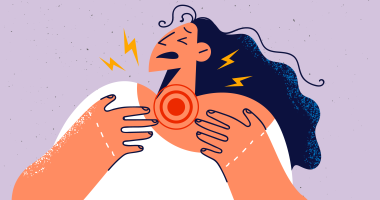In an effort to stem the spread of the new Omicron COVID-19 variant, Canada, the United States and many other countries have rushed to enforce new testing requirements at their borders — leaving Canadians and many other international travellers scrambling to figure out or rethink their holiday travel plans.

On Thursday, President Joe Biden announced sweeping changes to the U.S. COVID-19 testing policy for international travellers, requiring everyone flying into the country to present a negative COVID-19 test taken within one day of departure.
Earlier this week, the Canadian government also presented a handful of new restrictions and changes to its travel policy — most notably the introduction of a new on-arrival test for all travellers not coming from the U.S. While waiting for their test results, travellers are expected to isolate.
Here’s everything you need to know about the COVID-19 tests you need before travelling to the U.S., or coming back to Canada.
Molecular, antigen or antibody tests?
Many travellers say they’re still uncertain about which tests they need to enter either country amid the flurry of new restrictions.
Currently, there are two different types of COVID-19 tests — diagnostic and antibody.
Diagnostic tests are used to show if a person, at the time of the test, has a COVID-19 infection. Samples for these tests are usually taken either with a nasal or throat swab, or using saliva spit into a tube.
The two most common COVID-19 tests under this category are those of the molecular polymerase chain reaction (PCR) tests and rapid antigen tests.
With a PCR test, a swab is typically used to collect material from your respiratory tract deep in your nasal passage. The sample is then sent to a laboratory, where a technician interprets the results.
PCR test results can be readily available within 24 hours, but can sometimes take a few days — varying as well with the time it takes samples to reach labs.
The antigen rapid test, on the other hand, is usually more readily available and is the cheaper option of the two. Samples for the test can be collected from either the nose or throat, and a test result could be ready in as quick as 15 to 20 minutes.
Both tests could also be self-administered under supervision from a telehealth professional, though travellers need to be wary of exactly what types and brands of tests are approved by the country they’re seeking to go to — and if that country even allows for travellers to test themselves.
Antibody tests on the other hand look specifically for the antibodies in your immune system that were produced in response to contracting the virus that causes COVID-19.
Samples for these tests are usually taken with blood drawn from a finger prick, or by a medical professional.
These tests aren’t usually recommended to diagnose active COVID-19 infections, as antibodies could take days or weeks to develop after infection, and are not usually used to determine if a person is allowed to travel to enter another country’s borders.
What tests do you need to enter Canada?
The federal government on Tuesday issued several new travel requirements and restrictions, including the need for travellers to test on arrival in Canada.
All travellers entering Canada will have to take a PCR test, after which they must isolate until they receive a negative result — regardless of their vaccination status.
Canada still requires everyone entering the country to present a negative PCR COVID-19 test taken within 72 hours of departure.
Prices for PCR tests can run up to several hundred dollars depending on where a traveller is flying from, and its availability and accessibility varies by country.
In-person PCR tests in Canada can usually be booked quickly in Canada across many health clinics, hospitals, drug stores and pharmacies — including Rexall and Shoppers Drug Mart. Stores like Costco also sell travel approved COVID-19 tests, which can be self-administered under supervision.
Travellers won’t have to pay extra for their on-arrival PCR tests, with the federal government promising to cover the full cost.
Previously, fully vaccinated travellers were only subject to random molecular PCR tests while all unvaccinated travellers had to undergo mandatory quarantining and testing on arrival, according to the Association of Canadian Travel Agencies (ACTA).
A full list of approved tests is available online from the Public Health Agency of Canada.
Currently, rapid antigen tests are not accepted as a pre-entry test to enter the country, though a handful of other tests can be used including nucleic acid tests or RT-LAMP tests.
What tests are needed for U.S. travel?
In an effort to stem the spread of the Omicron variant, the U.S. enacted a handful of new measures Thursday — including the need for all travellers to present a negative COVID-19 test taken within one day of departure.
The order, which goes into effect Dec. 6, extends to all travellers aged two and older, and includes fully vaccinated U.S. and Canadian citizens.
The new restrictions however don’t limit the types of tests that travellers could use — authorizing the use of molecular PCR tests, rapid antigen tests and several others.
The U.S. Centers for Disease Control and Prevention (CDC) also has a full online list with the types of COVID-19 tests accepted, and includes NAATs, RT-LAMPs and NEAR tests.
A self-administered PCR or antigen test could also be valid for travel into the U.S. if the brand is approved by the FDA, and is supervised real-time by an approved telehealth provider.
Experts and advocates were quick to note that the U.S. testing requirement allows the use of the cheaper and easier-to-get rapid antigen test.
Self-administered antigen tests can range in price, though some online retailers sell them in Canada for as cheap as $10. Pharmacies like Shoppers Drug Mart can also administer antigen tests with appointments, and promise results within 15 to 20 minutes.
Travellers flying into the U.S. that have recovered from a COVID-19 infection within the past 90 days may also be exempt from the testing requirement if they provide a previous positive test result, and a letter from either their health-care provider or public health official declaring them cleared for travel.
Richard Vanderlubbe, director of ACTA and founder of Tripcentral.ca, told Global News in an earlier interview that the new U.S. travel restrictions could have “been a lot worse.”
“Antigen tests are inexpensive and they’re easy to get, you get the results in 15 minutes — so the day before you’re leaving for the states,” he said.









